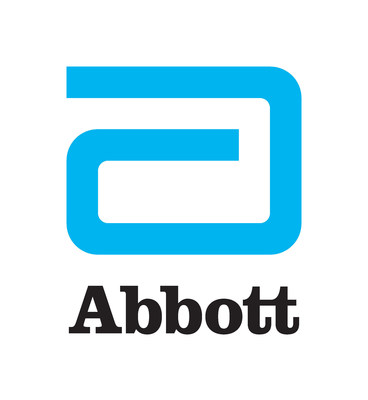



ABBOTT PARK, Ill., May 2, 2018 /PRNewswire/ -- Abbott (NYSE: ABT) today announced that Japan's Ministry of Health Labour and Welfare (MHLW) granted national reimbursement for XIENCE Sierra™, the newest generation of the company's gold-standard XIENCE everolimus-eluting coronary stent. XIENCE Sierra improves upon previous versions of XIENCE with an enhanced stent design, a new delivery system, and unique sizes to help doctors treat challenging cases.
XIENCE Sierra was designed to help doctors more easily treat people with difficult-to-treat blockages that involve multiple or totally blocked arteries or complications such as diabetes. Complex cases are increasingly prevalent as people with coronary artery disease are living longer.
"Extensive clinical data and 10 years of real-world experience with the XIENCE family of stents provide doctors with confidence that they are treating their patients with one of the safest stents available," said Chuck Brynelsen, senior vice president of Abbott's vascular business. "National reimbursement of XIENCE Sierra will provide people in Japan with greater access to this life-changing technology that can help them live their best lives."
Coronary artery disease is the most common form of heart disease,[1] which is the second leading cause of death in Japan.[2] National reimbursement in Japan will enable doctors to treat more patients with XIENCE Sierra through the country's health insurance plans. XIENCE Sierra was approved in Japan on April 4, 2018, received CE Mark in Europe late last year, and is under review with the U.S. Food and Drug Administration.
XIENCE has been studied in over 100 clinical trials and in 10 years of global real-world experience. Its safety profile is unprecedented with consistent low rates of stent thrombosis, even in complex cases. More than eight million people worldwide have received a XIENCE stent since its initial regulatory approval.[3]
About Coronary Artery Disease:
Coronary artery disease occurs when the arteries that supply blood to the heart become hard and narrow, leading to chest pain or shortness of breath and increased risk of heart attack. To treat coronary artery disease, interventional cardiologists may perform a percutaneous coronary intervention, a non-surgical procedure that uses a catheter inserted through an artery in the leg or wrist to implant a stent that reopens vessels and allows blood to flow.
About XIENCE:
XIENCE first received CE Mark in 2006 and FDA approval in 2008. A special coating on XIENCE interacts with proteins in the blood to reduce the risk for blood clots in the stent. For more information about XIENCE, visit www.XienceStent.com.
CAUTION: XIENCE Sierra is an investigational device in the U.S., limited by Federal law to investigational use only.
About Abbott:
At Abbott, we're committed to helping people live their best possible life through the power of health. For more than 125 years, we've brought new products and technologies to the world -- in nutrition, diagnostics, medical devices and branded generic pharmaceuticals -- that create more possibilities for more people at all stages of life. Today, 99,000 of us are working to help people live not just longer, but better, in the more than 150 countries we serve.
Connect with us at www.abbott.com, on Facebook at www.facebook.com/Abbott and on Twitter @AbbottNews and @AbbottGlobal.
[1] MedlinePlus. Coronary Artery Disease. Available on https://medlineplus.gov/coronaryarterydisease.html. Accessed April 24, 2018.
[2] Iso H. Changes in Coronary Heart Disease Risk Among Japanese. Circulation. 2008;118:2725-2729.
[3] Data on file at Abbott.

SOURCE Abbott
 BACK TO PRESS RELEASES
BACK TO PRESS RELEASES